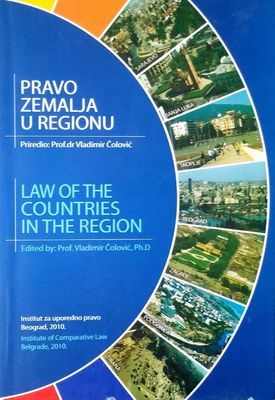Расположливи начини на приближување на националното трговско право на Република Македонија со трговското право на Европската Унија
Available Models for Harmonization of the Macedonian Business Law with the EU Business Law
Author(s): Goran Koevski
Subject(s): Law on Economics, EU-Legislation
Published by: Institut za uporedno pravo
Keywords: business law; models of convergence; harmonization; Macedonia; European Union
Summary/Abstract: Traditionally, the Commercial (Business) law in Macedonia is comprised of three main parts: 1) company law (legal business forms); 2) commercial contracts; and 3) securities and payment instruments.
All Commercial law constitutive parts, at the moment, are on different level of harmonization with the EU Law, although they cannot be analyzed independently from each other.
Although the general perception might be that the Company law part should be the most harmonized due to the globalization and erasure of the world or European trade boundaries, the situation in practice is not as expected.
Comparatively, the formal and the functional convergence of the national with the EU law are the two basic harmonization methods. The formal convergence means nothing else but harmonization of substantive and adjective legal rules by formal activity of the national legislator (the national parliament). Although the most certain, this approach seems to be the most difficult, mainly because of its openness to political lobbying and pressure from the opponents for such convergence.
The formal convergence might be achieved by using several techniques: via (in)direct transplants of company and similar laws; through convergence motivated by political dictate, such as the ongoing formal convergence of the EU member states laws by implementing or enforcing different EU directives or regulations.
Book: Pravo zemalja u regionu
- Page Range: 202-217
- Page Count: 16
- Publication Year: 2010
- Language: Macedonian
- Content File-PDF

